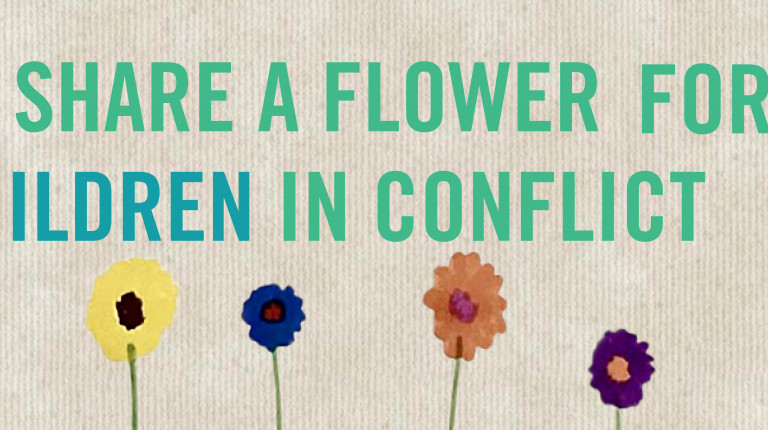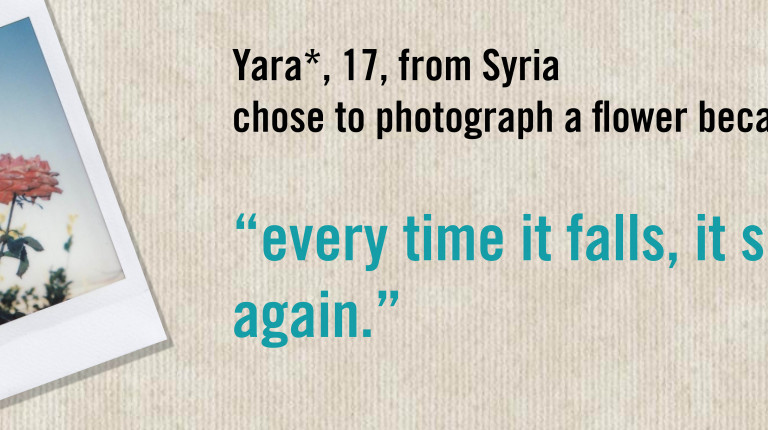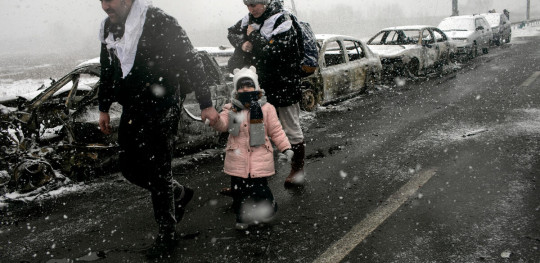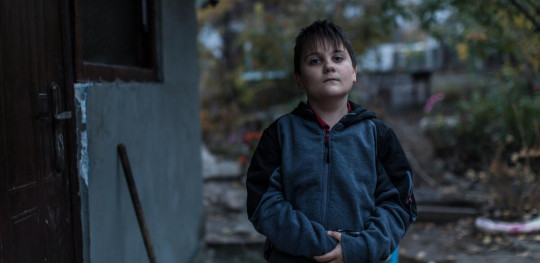Sharing a message of solidarity for children living in war zones
As conflict rages around the world – from Ukraine to Myanmar, Syria to Yemen – people everywhere are sending a message of solidarity and hope to the children on the frontlines of war. Across the world people have started filling social media feeds, the streets and all sorts of spaces with flowers for children living through conflict.
The power of sharing flowers
Sharing flowers is a simple act we can all do – children and adults alike. By sharing a flower, you can send a simple, powerful message of solidarity to the children living through the horrors of war.
Flowers can express feelings that words can’t. They can symbolise love, grief, rebirth and new beginnings.
In our child-friendly spaces – where children can play, learn, feel safe and regain a sense of normality in the midst of conflict – children often draw, paint and photograph flowers as symbols of hope and peace.
Every child deserves a future, and we stand alongside them.
How can you get involved
If you want to join us in sending a message of solidarity to children in conflict, here’s what you can do today:
Share a flower for children on your social media or you can draw your own flower or take a photo of a flower that gives you hope. Then share it on your social media channels with your friends and family. Make sure to use the hashtag #StopTheWaronChildren so you can be part of the global show of solidarity.
You could get outside for a walk and take a photo of the prettiest flower, or ask your children to draw a flower for a child in conflict.
Your voice counts. Join us and share a flower for children on the frontlines of war. #StopTheWaronChildren.
What Save the Children does to support children in conflict
In times of crisis, when children are at their most vulnerable, Save the Children is there.
We are always among the first organisations to deliver life-saving support and humanitarian aid for children and their families.
We provide access to safe, inclusive, quality education for children, so their education isn’t disrupted.
We create child-friendly spaces, where children have the opportunity to play, learn, feel safe and regain a sense of normality in the midst of conflict.
When children experience trauma, we work to ensure they receive the care, rehabilitation and psychosocial support they need to be children again.
And we provide families with cash support, food and kits containing blankets, solar-powered lamps and kitchen utensils, so they can meet basic needs like food, rent and medicines.





